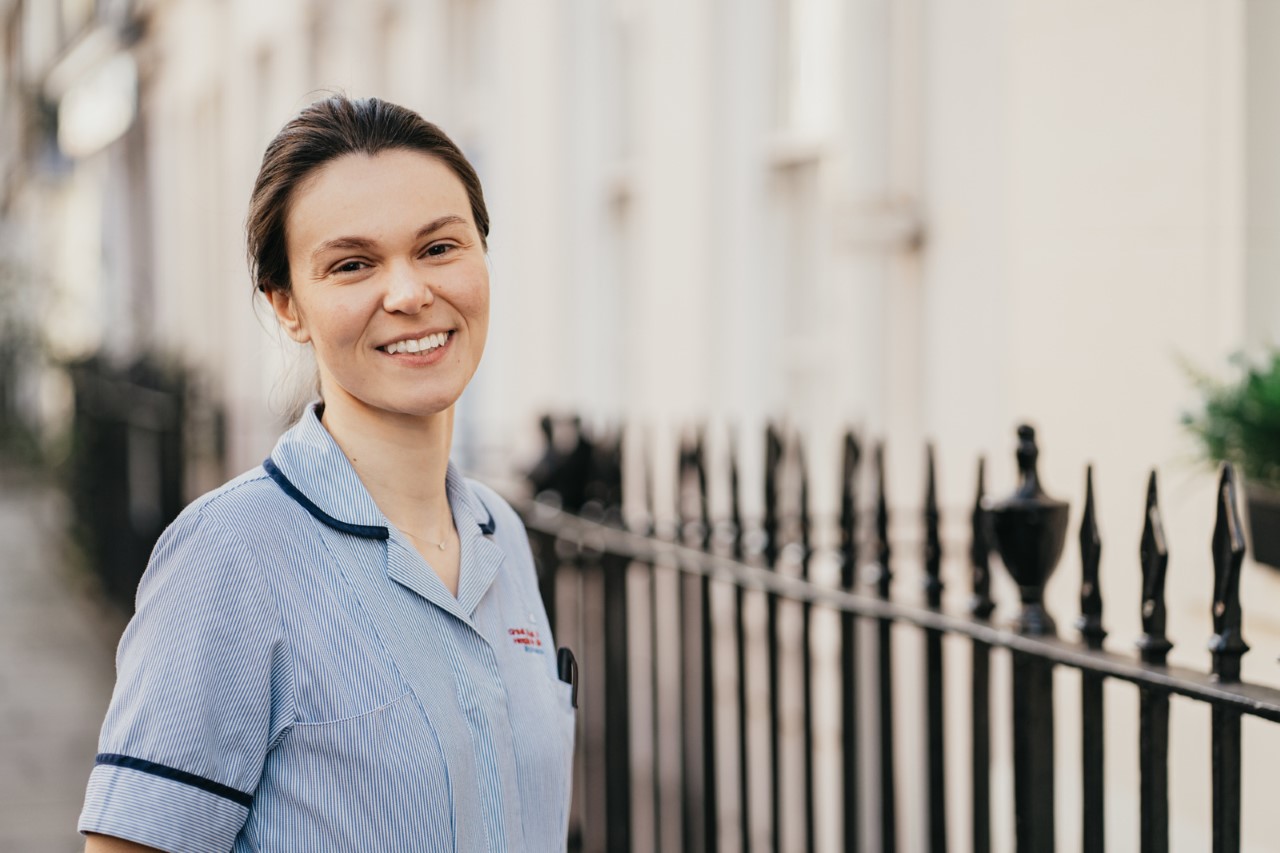
A paediatric radiographer at Great Ormond Street Hospital is now pursuing a National Institute of Health Research Doctoral and Clinical Academic Practitioner Fellowship.
Jess Eaton specialises in forensic imaging, and is conducting research which explores the experiences of families and radiographers during examinations for unexplained bone fractures in children, aiming to improve the process of these sensitive investigations.
Having completed a Health Education England/National Institute of Health Research (HEE/NIHR) Pre-Doctoral Clinical and Practitioner Academic Fellowship (PCAF) award, she is now seeking a Doctoral and Clinical Academic Practitioner Fellowship (DCAF).
Research goals
Ms Eaton made use of application guidance and mock interviews in order to support her successful fellowship application, through NIHR Research Support Service (RSS) Imperial College London and Partners.
It is this support that helped her secure the award, she explained.
“As a radiographer, there can be barriers to getting involved in research,” she said. “Compared to other allied health professions, radiographers are underrepresented in the research arena. Building a supportive team that understands the NIHR scheme is essential.
“Many people don't realise that radiographers play an important role in child safeguarding. These investigations can be highly traumatic for both families and staff. The findings from this project will help create resources to better support staff and families accessing these services in the future.”
Support services
Ms Eaton’s application was a “significant undertaking,” she said. Fortunately, the RSS provided “valuable support” throughout the process.
“The lengthy DCAF form benefited from having a fresh pair of eyes to review it,” she explained. “Feedback and recommendations from RSS staff, who had expertise in my research methodology, were essential for refining my application.”
Her mock interview was also helpful – the RSS team selected panel members with expertise that lined up with her proposed subject.
This, Ms Eaton added, ensured the questions they asked were tailored to the methodologies and subject matter of her research.
The mock interview took place a week before her actual interview, giving Ms Eaton time afterwards to adjust and practise with the anticipated questions.
She said: “The timing of the mock interviews was ideal, occurring a week before my actual interview. This allowed me time afterwards to adjust and practise the anticipated questions.
“Many of the questions from the mock interview did in fact arise during my real interview. This helped me remain composed, confident that the RSS team's preparation had equipped me well.
“From start to finish, the RSS service proved incredibly valuable. The team's support and guidance were instrumental to the success of my application.”
Pre-Doctoral Clinical and Practitioner Academic Fellowship
The PCAF scheme offers salaried time to develop a doctoral fellowship application and to undertake funded academic training.
Open to early career researchers from the health and care professions (excluding doctors and dentists) who are committed to a clinical academic or practitioner academic career, the scheme provides research training awards for registered health and care professionals to develop practitioner academic careers.
It combines continued practice and professional development with research and research leadership.
Doctoral and Clinical Academic Practitioner Fellowship
This fellowship funds registered health and care professionals to undertake a PhD by research, alongside further professional development and practice.
It offers funding to cover:
- Salary costs
- PhD tuition fees
- Costs of an appropriate research project
- Costs of tailored academic and professional development programmes
Find out more about NIHR Fellowships, and the RSS here.
(Image: Jess Eaton, via NIHR Research Support Service)
